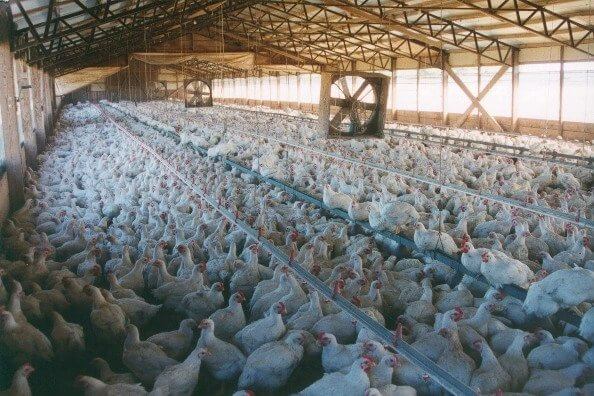Burn, Barn, Burn, Say Farmers
It happens that the smell of seared pork and cooked chicken doesn’t always come from a barbecue grill or oven. Sometimes it’s straight out of the barn. That’s because every year, hundreds of thousands of chickens, pigs, cows, and other animals are burned alive in barn fires.
In March, hundreds of animals, mostly pigs and cows, were killed in barn fires in Michigan, Ohio, and New York. A couple of months later, as many as half a million hens went up in smoke in a fire at an egg factory farm in Roggen, Colo.

A law that requires mega-farms to install sprinklers or a smoke-control system is being doused with cold water by big business operatives. As predictably as the now-silenced rooster who used to crow in the morning on the old family farm, the farmers reject every attempt to reduce the hardships and torment of the animals Paul McCartney waxed lyrical about in “Glass Walls,” his video about modern meat production.
It’s a full-fledged fight over fire extinguishers, similar to the recent battle that factory farmers waged to preserve the right to use a mechanical winch to drag collapsed cattle into the slaughterhouse, rather than put them out of their misery where they lay.
The burning-barn issue is this: The National Fire Protection Association (NFPA) recently amended its “NFPA 150: Standard on Fire and Life Safety in Animal Housing Facilities” — which currently requires automatic fire sprinkler and smoke-control systems in facilities that house animals such as lions and tigers — to include other facilities that house animals as well. The new regulations will cover nearly every single farm in the U.S. — but a shameless coalition of meat-, egg-, and dairy-industry organizations is now appealing the NFPA’s decision.
Since we can’t count on the meat, egg, and dairy industries to protect animals from the most egregious forms of cruelty, what can we, as consumers, do? Opting out of paying someone to allow animals to die in a barn fire or at the slaughterhouse seems pretty reasonable. Cheap meat is the problem. The answer is to replace meat recipes with vegan meals.
Written by Ingrid E. Newkirk
